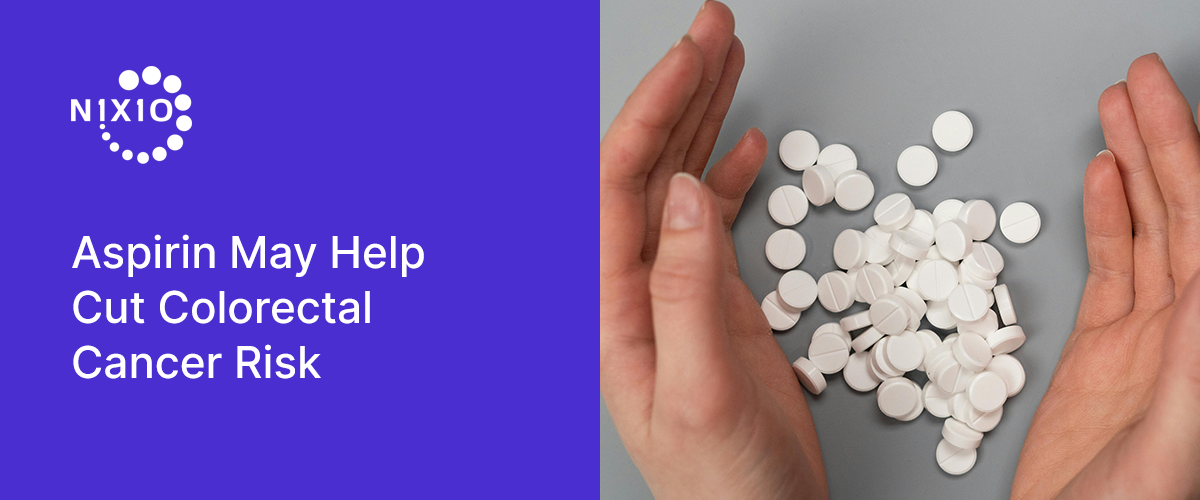Colorectal cancer (CRC) is the second-leading cause of cancer death in the U.S., according to the National Cancer Institute. Regular aspirin may help lower risk of colorectal cancer in people with greater lifestyle-related risk factors for the disease, according to a study led by researchers at Harvard-affiliated Mass General Brigham. The study showed that among the more than 100,000 men and women followed for 30 years, those with less-healthy lifestyles had benefited the most from regular aspirin use.
For the study, researchers analyzed the health data from 107,655 participants from the Nurses’ Health Study and Health Professionals Follow-Up Study. They compared the colorectal cancer rates in those who took aspirin regularly with those who did not take aspirin regularly. Regular aspirin use was defined as either two or more standard-dose (325 mg) tablets per week or daily low-dose (81 mg) aspirin. Study participants were followed starting from an average age of 49.4 years. Those who regularly took aspirin had a colorectal cancer 10-year cumulative incidence of 1.98 percent, compared with 2.95 percent among those who did not take aspirin. While the study included those who took standard-dose aspirin two times a week in the regular-aspirin using category, “based on prior studies, the best evidence supports daily low-dose (81 mg) aspirin for prevention” said co-senior author Andrew Chan, director of epidemiology for the Mass General Cancer Center and gastroenterology director of the Center for Young Adult Colorectal Cancer at Massachusetts General Hospital.
The benefit of aspirin was largest among those with the unhealthiest lifestyles. Those with the least-healthy lifestyle scores had a 3.4 percent chance of getting colorectal cancer if they did not take regular aspirin and a 2.12 percent chance of getting colorectal cancer if they took aspirin regularly. By contrast, in those with the healthiest lifestyle scores, the colorectal cancer rates were 1.5 percent in regular aspirin-taking group and 1.6 percent in the non-regular aspirin group. This means that in the least-healthy group, treating 78 patients with aspirin would prevent one case of colorectal cancer over a 10-year period, while it would take treating 909 patients to prevent one case for the healthiest group.
Lifestyle modification has similarly been associated with a reduction in CRC incidence. Observational studies have reported the benefit of a healthy diet and body mass index (BMI), engaging in physical activity, avoiding cigarette use, and limiting alcohol intake. Data suggest a differential effect of aspirin use by dietary factors, adiposity, and smoking, although these studies often highlighted heterogeneous responses in the context of a single risk factor. It remains unclear whether individuals with a greater overall lifestyle risk might benefit more from the use of aspirin.
Previous studies have found evidence to suggest aspirin can reduce the production of pro-inflammatory proteins, known as prostaglandins, that can promote the development of cancer. Aspirin may also block signaling pathways that cause cells to grow out of control, influence the immune response against cancer cells, and block the development of blood vessels that supply nutrients to cancer cells. “Aspirin likely prevents colorectal cancer through multiple mechanisms,” Chan said.
“Our results show that aspirin can proportionally lower the markedly elevated risk in those with multiple risk factors for colorectal cancer,” said Daniel Sikavi, lead author of the paper and a gastroenterologist at MGH. “In contrast, those with a healthier lifestyle have a lower baseline risk of colorectal cancer, and, therefore, their benefit from aspirin was still evident, albeit less pronounced.”


